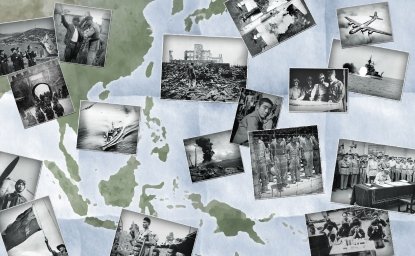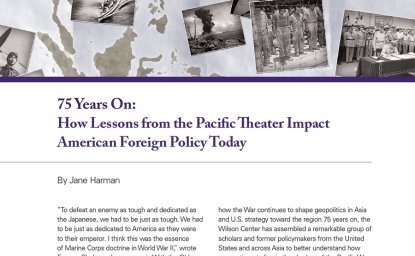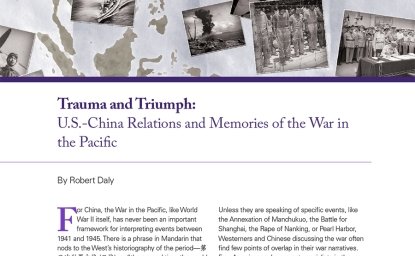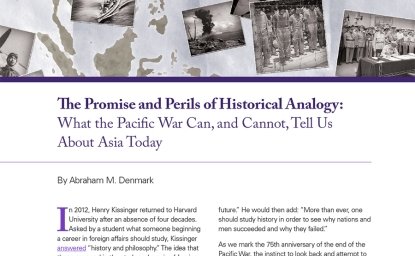Clash of Memories and Clash of Dreams: The Legacy of the Pacific War and the Future of the East Asian Peace


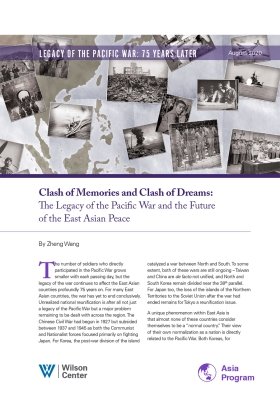
The number of soldiers who directly participated in the Pacific War grows smaller with each passing day, but the legacy of the war continues to affect the East Asian countries profoundly 75 years on. For many East Asian countries, the war has yet to end conclusively. Unrealized national reunification is after all not just a legacy of the Pacific War but a major problem remaining to be dealt with across the region.
In this report, Zheng Wang examines the Pacific War’s legacy and its impact on the future of East Asian geopolitics. As Dr. Wang argues, although the number of soldiers who directly participated in the Pacific War grows smaller with each passing day, the legacy of the war continues to affect the East Asian countries profoundly 75 years on. For many East Asian countries, the war has yet to end conclusively. As a result of the war, China, Korea, and Japan do not view themselves as “normal countries,” and instead strive for national reunification—a Pacific War legacy with powerful implications for East Asian geopolitics today.
This article is part of the Asia Program’s Legacy of the Pacific War series.
Author

Professor, School of Diplomacy and International Relations, Seton Hall University

Indo-Pacific Program
The Indo-Pacific Program promotes policy debate and intellectual discussions on US interests in the Asia-Pacific as well as political, economic, security, and social issues relating to the world’s most populous and economically dynamic region. Read more


Kissinger Institute on China and the United States
The Kissinger Institute works to ensure that China policy serves American long-term interests and is founded in understanding of historical and cultural factors in bilateral relations and in accurate assessment of the aspirations of China’s government and people. Read more

